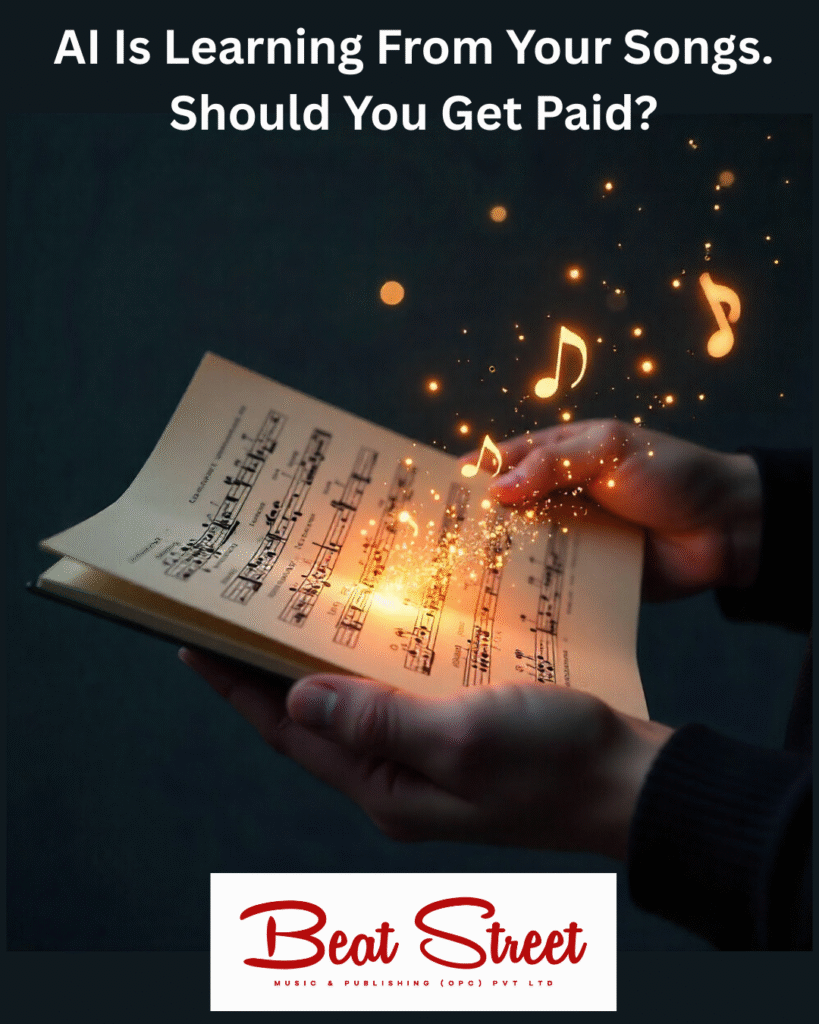Artificial intelligence is no longer a faraway concept. It is already shaping how music is discovered, created, and consumed. From songs generated by startups like Suno or Udio to AI tools that help with mixing and mastering, the technology is moving faster than the rules that govern it.
At the heart of the debate is one big question. If AI is trained on your songs without your permission, should you be paid for it?

Why This Matters to You
If you are a composer or a lyricist, you know the effort that goes into writing a melody or shaping the perfect line. Now imagine that your work, along with millions of others, is being fed into an AI system to help it learn how to create music. The system will not name you. It will not credit you. But it will use your art to make something new.
The question is simple. Should that use be free, or should it be licensed just like any other use of your music?
The Labels Have Started the Fight
Major record labels have already taken AI companies to court. They argue that recordings cannot be copied or repurposed without permission. That fight is underway, and the outcome will affect the entire industry.
But recordings are only half the story. Behind every recording there is a composition and a lyric. If AI models are trained on recordings, they are also learning from the underlying compositions. That means songwriters and lyricists are very much part of this debate, even if they are not in the headlines yet.
A New Kind of Licensing
In the future, AI companies may need to enter into licensing deals not only with labels but also with publishers and collective societies. That could open up new revenue streams for writers and authors. Imagine a world where the use of your song in AI training is tracked and paid for, the same way you receive streaming royalties today.
It will not be simple. The industry will need systems for attribution, tracking, and payment. Think of it like this: if an AI generates a melody that closely resembles your hit chorus, should that trigger a royalty? These are the questions the industry must answer.
But unless songwriters push for it, there is a risk they will be left out of the conversation and out of the value chain.
What You Can Do Now
Stay informed. Follow the lawsuits, the announcements from platforms, and the updates from your publishers or societies. Talk to your peers and your managers about AI clauses in contracts. Most importantly, do not assume this is someone else’s battle. If you write songs or lyrics, your work is already part of the fuel that makes AI possible.
Looking Ahead
AI is not going away. It will become part of the creative process, sometimes in ways that feel exciting and sometimes in ways that feel threatening. But one principle must remain constant. Creativity has value, and the people who create deserve recognition and fair compensation.
As a composer or lyricist, you do not need to be afraid of AI. You just need to make sure that when it uses your work, you are in the room, your rights are respected, and your name is not lost in the noise of the machine.
Leave a Reply